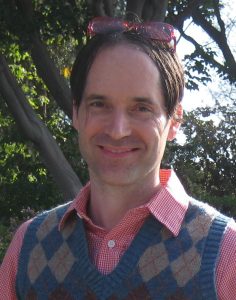After Mark Rothko (see images here)
The present we know,
with its ascending stairs
that are somewhere else
descending, happened
as we wandered, as the field
widened and took us in.
We saw what we were as we
held it close and it doubled
and gave. As the Plumeria opened,
we savored, sometimes painfully,
as gladness flooded in. It was
too much, too hard to know
who or what could be trusted,
what might destroy or leave us
without a mind. The edging forward
happened despite ebbing terror.
We knew we’d lose what we’d been
hoping for in the shadow where it waited,
no less than in the areas that rise beyond home—
mountain paths into composite cities.
We could keep a certain part of what we were
as it gathered, but there was more
we couldn’t hold, moments
unaccounted for by the design.
Abundance was invariant.
The more we knew the greater
the fear of ending. Little
could be articulated
because the subject was less
a subject than a being alive,
a form of exhilaration,
music of a sudden delirium, a love
you can’t stop, like a dance
in a bar at midnight when the jukebox
changes songs and you know you’ll
be there for a while because really
what else are you doing here
but moving to the music
whatever music you are given
or can create, moving to a sigh
that has no interest in centuries,
but for which you can be glad
to have arrived, in motion,
like a bird tracing the skyline,
the after-light of song. Believe
or don’t but keep moving.
Don’t be still until the stillness
is upon you. Because there may be
a time of day when you can go
no further but have nowhere
to pause. There it is, then:
the end. This tender place
you would give anything to keep
but cannot. The advert says
keep going, and it’s true.
Everything we know
plays its part in disappearing.
 Caley O’Dwyer teaches psychology and creative writing at Antioch University Los Angeles and creative writing in the Master of Professional Writing Program at the University of Southern California. His poems appear in Alaska Quarterly Review, Prairie Schooner, Cream City Review, Hayden’s Ferry Review, Washington Square, and others venues, including the Tate Modern Museum in London. He is a winner of an Academy of American Poets Prize, a two-time nominee for the Pushcart Prize, and a recipient of a Helene Wurlitzer grant for poetry. His first book, Full Nova, was published by Orchises Press, and his second, in progress collection, Light, Earth and Blue, features poems written in response to the abstract expressionist paintings of Mark Rothko. He is also working on a novel called The Hollywood Kid.
Caley O’Dwyer teaches psychology and creative writing at Antioch University Los Angeles and creative writing in the Master of Professional Writing Program at the University of Southern California. His poems appear in Alaska Quarterly Review, Prairie Schooner, Cream City Review, Hayden’s Ferry Review, Washington Square, and others venues, including the Tate Modern Museum in London. He is a winner of an Academy of American Poets Prize, a two-time nominee for the Pushcart Prize, and a recipient of a Helene Wurlitzer grant for poetry. His first book, Full Nova, was published by Orchises Press, and his second, in progress collection, Light, Earth and Blue, features poems written in response to the abstract expressionist paintings of Mark Rothko. He is also working on a novel called The Hollywood Kid.
